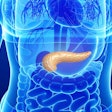Biogen plans to acquire Human Immunology Biosciences (HI-Bio) for $1.15 billion upfront and pay potential milestone payments of $650 million to nurture HI-Bio's investigational therapy for severe autoimmune kidney disease and kidney transplant complications.
HI-Bio's anti-CD38 monoclonal antibody felzartamab is progressing toward phase III clinical trials in the potential treatment of primary membranous nephropathy (pMN), a kidney-specific autoimmune disease, for which the therapy received breakthrough therapy designation from the U.S. Food and Drug Administration (FDA) in October 2023; and in the potential treatment of antibody-mediated rejection (AMR) in kidney transplant recipients after felzartamab received orphan drug designation from the FDA in March. Felzartamab is also being investigated for its potential to treat immunoglobulin A (IgA) nephropathy, a type of kidney inflammation.
Felzartamab is an anti-CD38 monoclonal antibody that has been shown in clinical studies to selectively deplete CD38+ cells including plasma cells and natural killer cells. The therapy could ultimately improve clinical outcomes in a broad range of immune-mediated diseases, according to Biogen.
Biogen's bid follows a series of events for HI-Bio that in-licensed felzartamab from MorphoSys in 2022. In January, HI-Bio closed $95 million Series B financing led by new investor Alpha Wave Global. Viking Global Investors and Arkin Bio Capital participated in the financing, as well as existing investors Jeito Capital and ARCH Venture Partners, according to HI-Bio.
With the acquisition, Biogen plans to establish a San Francisco Bay area team focused on immune-mediated diseases. The transaction is expected to close in the third quarter of 2024 and not expected to affect Biogen's previously issued 2024 guidance, according to the company.
HI-Bio plans to present two abstracts at the upcoming European Renal Association (ERA) Congress in Stockholm this week, including the complete phase II data from the AMR study in kidney transplant patients and interim data from the phase II IgAN study.



















